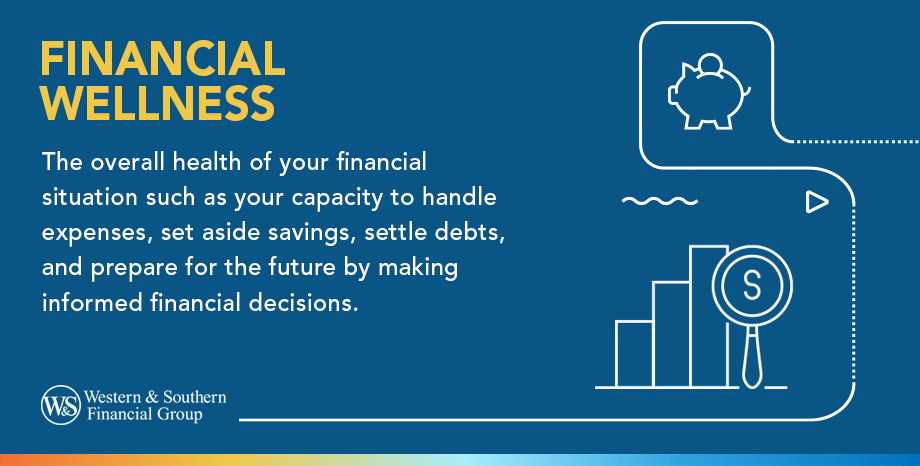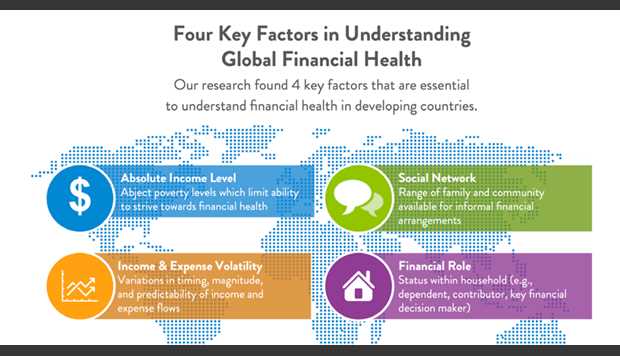What is Financial Health?
Financial health refers to the overall state of an individual’s or organization’s financial well-being. It encompasses various aspects such as income, expenses, savings, debt, and investments. A financially healthy person or organization is able to meet their financial obligations, maintain a positive cash flow, and have a solid financial foundation for future needs and goals.
Having good financial health is important for several reasons. It provides stability and security, reduces stress, and allows individuals and organizations to plan for the future. It also enables them to take advantage of opportunities and cope with unexpected financial challenges.
Financial health can be measured using various indicators and metrics. These may include income-to-expense ratio, debt-to-income ratio, savings rate, net worth, and credit score. These measures help assess one’s financial position and identify areas for improvement.
Improving financial health requires a combination of strategies and habits. This may include creating a budget, reducing unnecessary expenses, increasing income, saving and investing wisely, and managing debt effectively. It also involves developing good financial habits such as tracking expenses, paying bills on time, and regularly reviewing and adjusting financial goals.
The Importance of Financial Health
Having good financial health is essential for several reasons:
- Stability and Security: A strong financial foundation provides stability and security, allowing individuals and businesses to weather financial storms and unexpected expenses. It reduces the risk of falling into debt or facing financial hardships.
- Financial Freedom: Good financial health enables individuals to have more control over their financial decisions and choices. It allows them to pursue their goals, dreams, and aspirations without being limited by financial constraints.
- Peace of Mind: Being financially healthy brings peace of mind, reducing stress and anxiety related to financial matters. It allows individuals to focus on other aspects of their lives and improves overall well-being.
- Opportunities and Growth: Financial health opens up opportunities for growth and success. It enables individuals to invest in education, start a business, or make strategic financial decisions that can lead to long-term prosperity.
- Preparation for Emergencies: Maintaining good financial health includes building an emergency fund. This provides a safety net in case of unexpected events such as medical emergencies, job loss, or natural disasters.
Factors Affecting Financial Health
Several factors contribute to an individual or organization’s financial health:
| Income | The amount of money earned through employment, investments, or other sources. |
|---|---|
| Expenses | The money spent on various necessities, such as housing, utilities, transportation, and groceries. |
| Savings | The portion of income not spent and set aside for future needs or emergencies. |
| Debt | The amount of money owed to lenders or creditors, such as loans, credit card debt, or mortgages. |
| Investments | The allocation of funds into assets or ventures that have the potential to generate returns or increase in value. |
These factors interact with each other and should be carefully managed to maintain good financial health. It is important to have a balanced approach by ensuring a steady income, controlling expenses, saving regularly, managing debt responsibly, and making wise investment decisions.
Measuring Financial Health
Measuring financial health is crucial for individuals and businesses alike. It provides a clear picture of their current financial situation and helps identify areas that need improvement. There are several key indicators and metrics that can be used to measure financial health.
1. Income-to-Debt Ratio
The income-to-debt ratio is a measure of how much debt an individual or business has in relation to their income. It is calculated by dividing the total debt by the annual income. A low income-to-debt ratio indicates a healthier financial situation, as it means there is less debt relative to income.
2. Savings Rate
The savings rate is the percentage of income that is saved or invested. It is an important indicator of financial health, as it shows the ability to save for emergencies, retirement, and other financial goals. A higher savings rate indicates a healthier financial situation.
3. Credit Score
A credit score is a numerical representation of an individual’s creditworthiness. It is based on their credit history and is used by lenders to determine the likelihood of defaulting on a loan. A higher credit score indicates better financial health, as it shows a history of responsible borrowing and repayment.
4. Debt-to-Income Ratio
The debt-to-income ratio is a measure of how much debt an individual or business has in relation to their income. It is calculated by dividing the total debt by the annual income. A low debt-to-income ratio indicates a healthier financial situation, as it means there is less debt relative to income.
5. Net Worth

Net worth is the difference between an individual’s assets and liabilities. It is a measure of their overall financial health and can be used to track progress over time. A higher net worth indicates a healthier financial situation, as it means there are more assets than liabilities.
6. Cash Flow
Cash flow is the amount of money that is coming in and going out of an individual’s or business’s accounts. It is an important metric to measure financial health, as it shows the ability to meet financial obligations and cover expenses. A positive cash flow indicates a healthier financial situation.
Key Indicators and Metrics for Measuring Financial Health
1. Income-to-Debt Ratio: This ratio compares the total income to the total debt of an individual or a company. It indicates the ability to manage and repay debts and is a good measure of financial health. A lower ratio suggests a healthier financial position.
2. Savings Rate: The savings rate is the percentage of income that is saved rather than spent. A higher savings rate indicates better financial health as it shows the ability to save for emergencies, investments, and future goals.
3. Debt-to-Income Ratio: This ratio compares the total debt to the total income. It measures the level of debt burden and the ability to meet financial obligations. A lower ratio suggests a healthier financial position.
4. Liquidity Ratio: The liquidity ratio measures the ability to meet short-term financial obligations. It compares liquid assets, such as cash and cash equivalents, to short-term liabilities. A higher ratio indicates better financial health as it shows the ability to cover immediate expenses.
5. Net Worth: Net worth is the difference between total assets and total liabilities. It represents the overall financial value or wealth of an individual or a company. A higher net worth indicates better financial health and a stronger financial position.
6. Credit Score: The credit score is a numerical representation of an individual’s or a company’s creditworthiness. It reflects the ability to borrow and repay debts. A higher credit score suggests better financial health and access to favorable credit terms.
7. Return on Investment (ROI): ROI measures the profitability and efficiency of investments. It indicates the ability to generate returns from investments. A higher ROI suggests better financial health and successful investment strategies.
These key indicators and metrics provide a comprehensive view of an individual’s or a company’s financial health. By analyzing and monitoring these indicators, individuals and businesses can make informed financial decisions, identify areas for improvement, and take necessary actions to enhance their overall financial well-being.
Improving Financial Health
Improving your financial health is crucial for achieving long-term financial stability and success. Here are some effective strategies and tips to help you improve your financial health:
- Create a Budget: Start by creating a realistic budget that outlines your income and expenses. This will help you track your spending and identify areas where you can cut back.
- Reduce Debt: Paying off high-interest debts should be a top priority. Consider consolidating your debts or negotiating with creditors to lower interest rates.
- Save and Invest: Make saving a habit by setting aside a portion of your income each month. Consider investing in low-risk options such as mutual funds or retirement accounts to grow your wealth over time.
- Emergency Fund: Build an emergency fund to cover unexpected expenses. Aim to save at least three to six months’ worth of living expenses.
- Improve Credit Score: Pay your bills on time, keep credit card balances low, and avoid opening unnecessary credit accounts to improve your credit score.
- Monitor Expenses: Regularly review your expenses to identify areas where you can cut back. Look for ways to save on utilities, groceries, and entertainment.
- Set Financial Goals: Define your financial goals and create a plan to achieve them. This will help you stay motivated and focused on improving your financial health.
- Seek Professional Help: If you’re struggling with your finances, consider seeking help from a financial advisor or credit counselor. They can provide guidance and help you develop a personalized plan.
Remember, improving your financial health takes time and effort. Stay committed to your goals and make consistent progress towards achieving them. With the right strategies and mindset, you can improve your financial health and secure a brighter future.
Effective Strategies and Tips for Improving Financial Health
Improving your financial health is crucial for achieving long-term financial stability and success. Here are some effective strategies and tips to help you improve your financial health:
Create a Budget

One of the first steps to improving your financial health is to create a budget. A budget helps you track your income and expenses, allowing you to see where your money is going and make necessary adjustments. Start by listing all your sources of income and then categorize your expenses. Make sure to allocate a portion of your income towards savings and emergency funds.
Reduce Debt

Reducing debt is another important aspect of improving your financial health. Start by paying off high-interest debts first, such as credit card debt. Consider consolidating your debts or negotiating with creditors for lower interest rates. Create a debt repayment plan and stick to it. By reducing your debt, you will have more disposable income to save and invest.
Save and Invest
Saving and investing are key components of improving your financial health. Start by building an emergency fund to cover unexpected expenses. Aim to save at least 10-20% of your income each month. Consider automating your savings by setting up automatic transfers to a separate savings account. Additionally, explore different investment options, such as stocks, bonds, and mutual funds, to grow your wealth over time.
Track Your Spending
Set Financial Goals
Setting financial goals is an effective way to improve your financial health. Determine what you want to achieve financially, whether it’s saving for a down payment on a house, paying off student loans, or retiring early. Break down your goals into smaller, manageable steps and create a timeline for achieving them. Regularly review and adjust your goals as needed. Having clear financial goals can motivate you to make positive financial choices and improve your financial health.
Seek Professional Advice
If you’re struggling to improve your financial health on your own, consider seeking professional advice. A financial advisor can provide guidance and help you develop a personalized plan to improve your financial situation. They can offer insights on budgeting, debt management, investment strategies, and more. Working with a professional can give you the knowledge and support you need to make informed financial decisions and ultimately improve your financial health.
Improving your financial health requires commitment, discipline, and patience. By implementing these strategies and tips, you can take control of your finances and work towards a healthier and more secure financial future.

Emily Bibb simplifies finance through bestselling books and articles, bridging complex concepts for everyday understanding. Engaging audiences via social media, she shares insights for financial success. Active in seminars and philanthropy, Bibb aims to create a more financially informed society, driven by her passion for empowering others.
